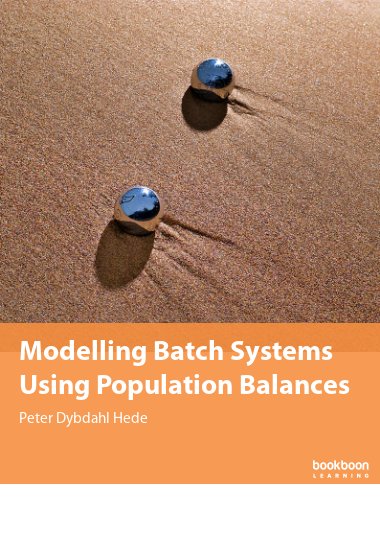The present text introduces the use of population balances in the context of batch wet granulation and coating systems and it reviews the latest achievements and proposals in the scientific literature in this field. The nature and framework of population balance theory are highlighted and one-dimensional population balances are introduced from scratch. This may seems tedious at first but the derivation of even the simplest population balances is nevertheless not an easy task, and it is in fact difficult to find complete derivations elsewhere in literature. In addition to the introduction of the different terms in the population balances, a brief historical review of coalescence kernels for the one-dimensional balances is presented. Next, a brief introduction to multi-dimensional balances is given hereby presenting some of the recent suggestions of two- and four-dimensional balances. Further, population balance solution techniques are introduced in terms of two simple analytical solutions besides an introduction to the field of numerical solution techniques. A number of the latest advances in the various available numerical solution techniques are further presented.
The text is aimed at undergraduate university or engineering-school students working in the field of mathematical or chemical and biochemical engineering. Newly graduated as well as experienced engineers may also find relevant new information as emphasis is put on the newest scientific discoveries and proposals presented in recent years of scientific publications. It is the hope that the present introductory text will be helpful to the reader – particularly in the first stages of the process of working with population balances. The comprehensive literature list may also hopefully be an inspiration for further reading.
I alone am responsible for any misprints or errors and I will be grateful to receive any critics and/or suggestions for further improvements.
Copenhagen, September 2006
Peter Dybdahl Hede

